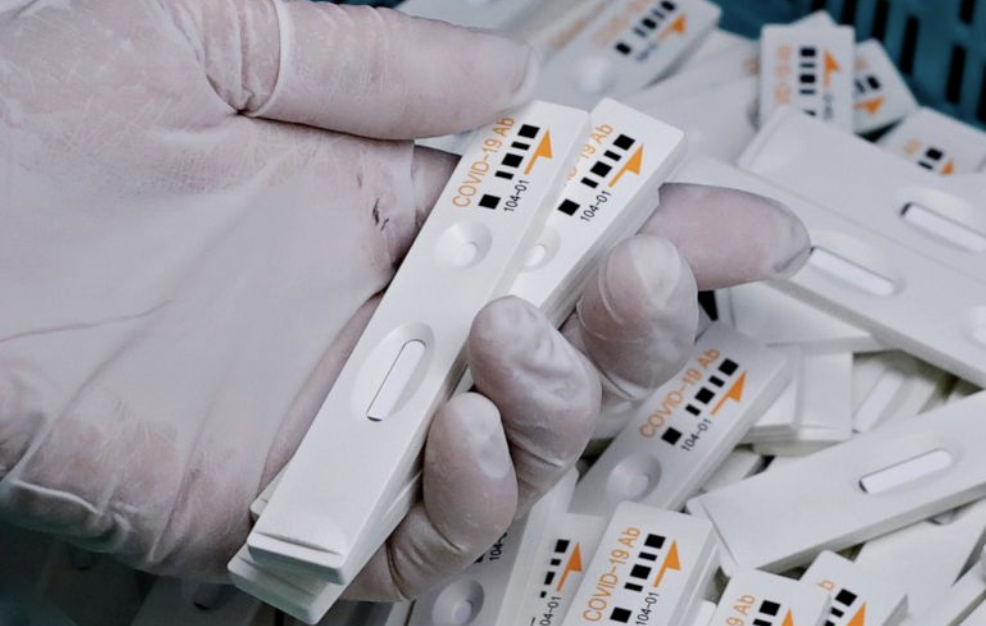New Study Shows US Coronavirus Infections “50- To 80-Fold Higher” Than Believed
One of the biggest problems confronting scientists and public health officials is the fact that we really don’t know how many people have contracted the virus, but have never shown symptoms.
These so-called “asymptomatic” cases have been a huge problem thwarting attempts at containment. And as governors start to roll out plans for reopening their states, people are wondering who is ready to go back to work first. Some have suggested that tests that can detect ‘antibodies’ for the virus – typically they develop in people who have recovered from the virus – should be used to determine who is “immune”, and then they should go back first.
The only snag is that there’s no evidence that the antibodies make somebody immune from this particular virus. Furthermore, some research has shown that antibodies in the blood of some recovered patients is nearly undetectable, suggesting that they might still be vulnerable to reinfection.
There’s also a theory that testing for antibodies could help show what percentage of the population was infected, but never symptomatic. To wit, a recent study carried out in California’s Santa Clara County found that random incidence of virus antibodies was significantly higher than researchers anticipated.
Here’s more from ABC News:
The first large-scale community test of 3,300 people in Santa Clara County found that 2.5 to 4.2% of those tested were positive for antibodies – a number suggesting a far higher past infection rate than the official count.
Based on the initial data, researchers estimate that the range of people who may have had the virus to be between 48,000 and 81,000 in the county of 2 million – as opposed to the approximately 1,000 in the county’s official tally at the time the samples were taken.
A critical question in the path towards the future is how many people actually have protective novel coronavirus antibodies and possible immunity? Two research teams in California – backed by armies of dedicated volunteers – set out to answer this very question and the first set of results are in.
“Our findings suggest that there is somewhere between 50- and 80-fold more infections in our county than what’s known by the number of cases than are reported by our department of public health,” Dr. Eran Bendavid, the associate professor of medicine at Stanford University who led the study, said in an interview with ABC News’ Diane Sawyer.
For those who can’t handle the basic math: That’s roughly 34 million Americans at the low end, roughly 10% of the population.
To be sure, this is just one study. And just as we need to take news of the University of Chicago remdesivir study with a grain of salt, so must we do with this.
The team running the study has confidence in the numbers, and while they might vary widely from community to community, they think the basic technique could be helpful in determining what percentage of the population has antibodies…
The initial data is the first to provide greater clarity about where a community is in the pandemic. But Bendavid cautions that the work was more illuminating about what’s happening on the community level than it was for any one individual.
“We have good confidence that we’re getting reliable information on the population. And that can be done because we know what proportion of the people who are positive we’re missing using this test,” said Bendavid.
The results suggests more research and analysis is needed to know how many people who tested positive for antibodies never knew they had the virus because they had no symptoms.
…even if that percentage will almost certainly be so small as to be negligible (even if it ends up showing in the mid-single digits, or slightly higher, which is many times the current penetration).
And on the upside, it would mean the virus’s mortality rate in the US is far low than its present level of roughly 5%.
Tyler Durden
Fri, 04/17/2020 – 19:00
via ZeroHedge News https://ift.tt/34KX1Ct Tyler Durden
